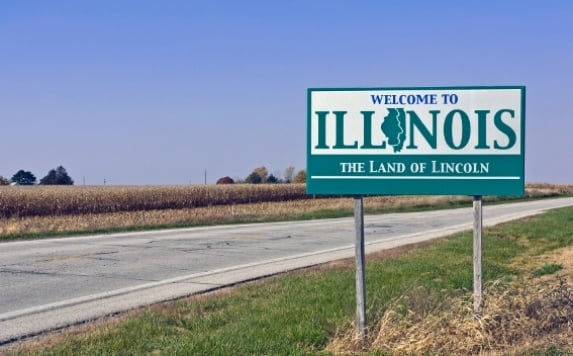Illinois Governor Pat Quinn said the battle to control employee pension costs “is our fiscal cliff and we need to deal with it” or analysts in “green eyeshades” will lower the state's credit rating again.
Quinn, 63, said there is “a clear and present danger” of another downgrade if state lawmakers don't act in the closing days of the legislative session in early January to restructure a pension system saddled with $96 billion in unfunded liabilities.
“We have a deadline -- it's called Jan. 9,” Quinn told reporters today during a breakfast meeting at Bloomberg's Chicago bureau. “We have ample time to get this done.”
Illinois has failed to fix its pension issues for current public employees and retirees as other states have boosted worker contributions and limited increases meant to account for inflation. Now the state and Quinn face wrenching choices.
Quinn, who succeeded imprisoned former Governor Rod Blagojevich in 2009, received a 25 percent public approval rating in a recent poll from Public Policy Polling. He dismissed the assessment, saying he was elected in 2010 with low ratings.
“I'm not in it to get higher approval ratings. I'm in it to do what's necessary for a state that had two corrupt governors in a row,” Quinn said, referring to Blagojevich, a Democrat, and former Republican Governor George Ryan, who also is in federal prison after being found guilty of official corruption. “That's why I aspire to be an honest governor who gets the job done in terms of ethics in government, but also tells the people the truth.”
RELATED ITEM States with the most-underfunded pension plans
Three months ago, Standard & Poor's cut the state's credit one level to A, sixth highest, citing retiree costs, and gave it a negative outlook. Only California, ranked A-, has a weaker rating among U.S. states.
The Civic Federation, a Chicago-based nonprofit research group, found that the combined funded ratio of the state's five pensions fell to 39 percent as of June 30, from 43.3 percent at the end of fiscal 2011. No other state's ratio was below 50 percent in that year, according to data compiled by Bloomberg. Illinois also has about $8 billion in unpaid bills.
An Illinois pension bond maturing in 2033 traded today at an average yield of 5.12 percent, according to data compiled by Bloomberg. That's the most that investors have demanded to hold the state's debt since Nov. 7. The taxable securities carry the same rating as the state's other general-obligation bonds.
State lawmakers are scheduled to return to Springfield, the state capital, on Jan. 2 for the closing week of the legislative session. Quinn said failure to reach a deal then might harm the state's ability to issue bonds and fund public works.
House Plan
A group of House members proposed a plan Dec. 5 that would increase pension contributions by employees and reduce annual cost-of-living increases in retirement. It would gradually shift some costs of teacher and university employee pensions to school districts and colleges.
It also would delay retirement dates, depending on employees' ages and when they started working.
Quinn, without endorsing the plan, called it “very intriguing” and applauded the effort to limit cost-of-living allowances. His goal, he said, is to wipe out the system's unfunded liability within 30 years.
Soon after the House members announced their proposal, a coalition of Illinois labor unions said in a statement there were “significant problems” with it and questioned whether the changes would be legal. The state constitution prohibits lawmakers from reducing pension benefits.
--Bloomberg News--







